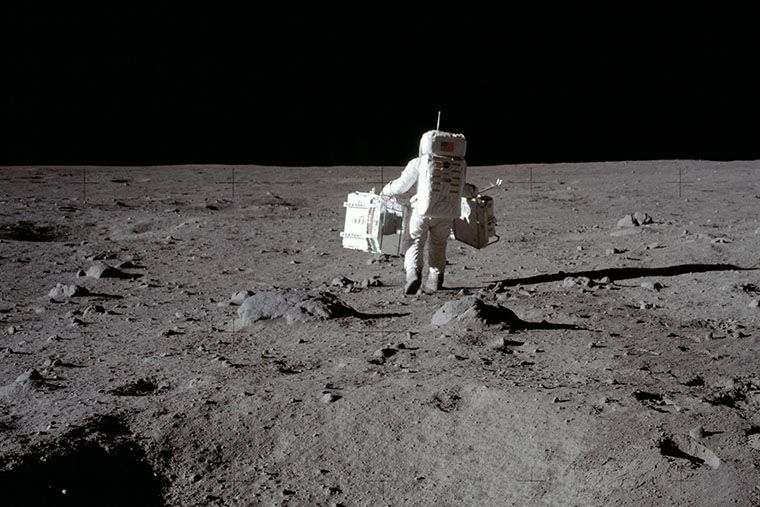
NASA Seeks Out Self-Funded Explorers to Mine Moon Dirt
Article from Bloomberg News September 11, 2020 (scmp.com)
• Although NASA’s Artemis program aims to land astronauts on the Moon in 2024, the space agency has put out a general offer to procure Moon rocks from anyone who plans on going to the Moon before then, whether they be private corporations or other nations’ space programs. They’ll only get paid $15,000 to $25,000, but they don’t need to actually bring the rocks back to Earth. Just tag and document them as sold. NASA isn’t as interested in Moon rocks as they are in setting a legal precedent for mining resources on the lunar surface that would allow NASA to one day collect ice, helium or other materials useful to colonies on the Moon and, some day Mars.
• Activities beyond the Earth are governed by the United Nations Outer Space Treaty of 1967, to which the U.S. is a signee. The 1967 Treaty bars extraterrestrial military bases or nuclear weapons, and basically requires nations to explore in peace and clean up their own mess. The treaty stipulates that outer space is not subject to “national appropriation by claim of sovereignty, by means of use or occupation, or by any other means”. But it does not specifically address space mining. “It’s time for regulatory certainty to extract and trade space resources,” says NASA administrator Jim Bridenstine.
• The winning bidder will collect about a pound of lunar regolith (ie: ‘rocks’), photograph it, document its location and then “conduct an ‘in-place’ transfer of ownership of the lunar or rocks to NASA. NASA will sort out the retrieval plans for the material at a later date. NASA will pay only for the lunar material that is collected. The contractor will be responsible for all costs associated with the mission.
• India is planning a second try at landing a rover on the Moon after its first attempt failed in September 2019. A $100M privately funded Israeli mission to land on the lunar surface failed in April 2019. In March 2018, Google and the XPrize Foundation ended its $30M lunar competition after multiple private teams were unable to launch and land a small rover on the Moon and to drive it at least 1,640 feet.
Nasa wants to buy some moon rocks, and it’s seeking out companies to make space mining trips so that it can establish a legal framework for its galactic aspirations.

The agency is soliciting bids from explorers anywhere on Earth who are willing to finance their own trips to the moon and collect soil or rock samples without actually returning the material to earth. The effort is meant to set a legal precedent for mining on the lunar surface that would allow Nasa to one day collect ice, helium or other materials useful to colonies on the moon and, eventually, Mars.
The National Aeronautics and Space Administration also wants to demonstrate the potential for “in situ resource utilisation”, or using locally sourced materials for future space missions, it said on Thursday. Nasa anticipates paying roughly between US$15,000 to US$25,000 per moon contract, agency Administrator Jim Bridenstine said, though final pricing will be determined by the competition.
Activities beyond the earthly plane are currently governed by the United Nations Outer Space Treaty of 1967. Signed by the United States, it bars extraterrestrial military bases or nuclear weapons and basically requires nations to explore in peace and clean up their own messes.
FAIR USE NOTICE: This page contains copyrighted material the use of which has not been specifically authorized by the copyright owner. ExoNews.org distributes this material for the purpose of news reporting, educational research, comment and criticism, constituting Fair Use under 17 U.S.C § 107. Please contact the Editor at ExoNews with any copyright issue.
Artemis program, Jim Bridenstine, lunar regolith, Moon rocks, NASA, United Nations Outer Space Treaty of 1967, XPrize Foundation